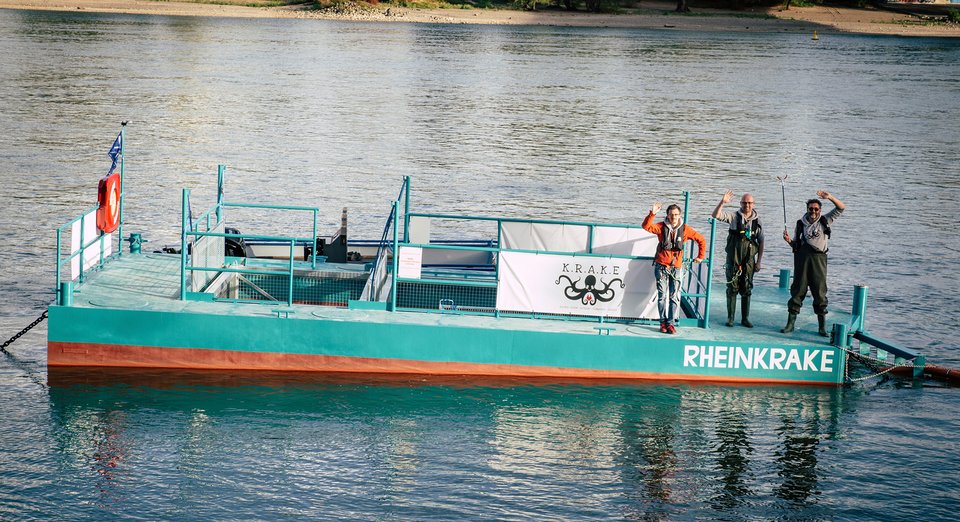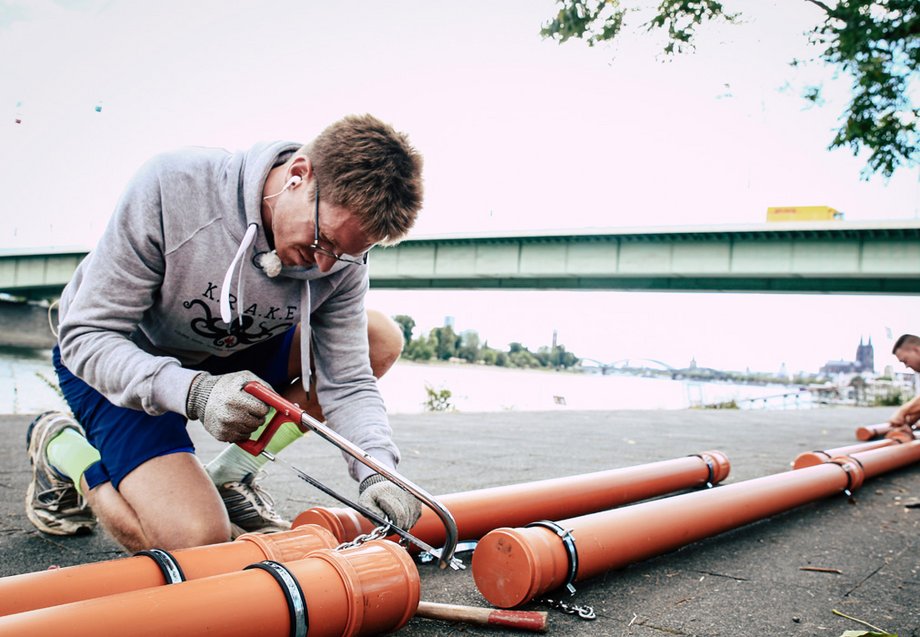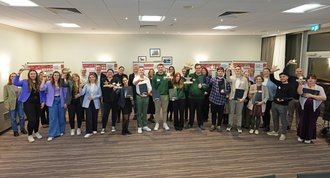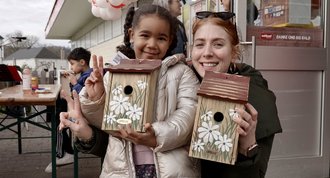
Every day, a tonne of rubbish flows down the Rhine. The Cologne-based association Krake e.V. wants to fight this flood and has installed a rubbish trap on the Rhine based on the British model. How it works and why REWE is supporting the project.
This "trap" is as big as a house, lies in the Rhine and is waiting for "prey" weighing tonnes: the Cologne Rhine Clean-up Command Unit (K.R.A.K.E.) has spent years building a so-called rubbish trap. This is a catch basket that is attached between two floats and opened against the direction of flow. Waste floats into the trap and is collected. The rubbish trap is designed in such a way that neither fish nor birds are endangered. The aim of the project is to actively protect the environment and draw attention to the issue of plastic in the environment.
It was presented in Cologne on Thursday (15 September 2022). It is Germany's first river rubbish trap. It is modelled on a similar rubbish raft that is already clearing the Thames of rubbish in London. The construction cost 160,000 euros - financed entirely by donations and sponsors. Among others, REWE supported the project.
"Rheinkrake" is located at the Zoo Bridge
"REWE has been committed to clean oceans, rivers and lakes with regional, national and international cooperation partners for years. We are therefore very pleased to be able to support the innovative K.R.A.K.E. project, a longer-term, ongoing waste disposal measure in the Rhine directly at REWE Group's headquarters," says Nicola Tanaskovic, Head of Sustainability at REWE Group.
The steel pontoon measures ten by six metres and can be moored at various points on the Rhine using anchors. The rubbish trap, christened "Rheinkrake", is currently located close to the riverbank directly at the Zoobrücke bridge (Rhine kilometre 690.3). "Due to the bend in the Rhine, the current there is strategically favourable for intercepting as much waste as possible," explained K.R.A.K.E.
 © KRAKE e.V.
© KRAKE e.V.
Long-term study on waste in the Rhine
Once a week, the rubbish trap is emptied by hand from a boat. The rubbish is then sorted on land and scientifically analysed in cooperation with the University of Bonn. "We hope to be able to conduct a long-term study on plastic waste in the Rhine in this way," says K.R.A.K.E.
The project has initially been approved for one year. It will then be assessed whether it should be extended or whether other locations in the Rhine should be considered for the installation of passive litter traps.








Both German and English comments appear here.
Very, very exemplary and an important step on the part of tradespeople to promote and support such projects - thank you for that.